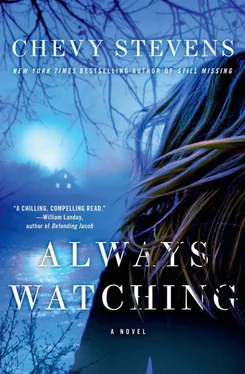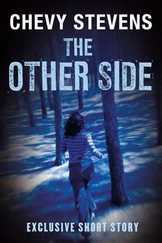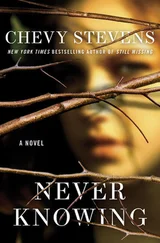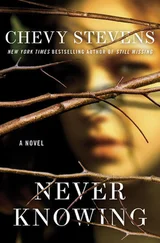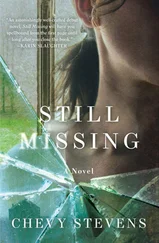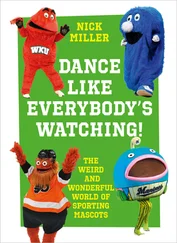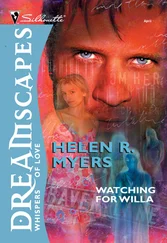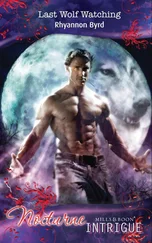Finally I took a breath, blotted my tears, and blew my nose, feeling wrung out, the emotions still thick in my throat as I struggled to accept what he’d done to me. I now understood why I’d blocked out the events. It was common in sexual abuse cases where the victim had been threatened, but I was still having a hard time grasping that it had happened to me. I was also scared what else might have happened—I still couldn’t recall how the abuse stopped, or if it did.
The officer said, “Were there any other occasions? Did he ever take you anywhere else?”
I remembered my mother’s confusion. Don’t you remember the picnic? It came back now. He’d taken us to a lake that had an old fishing cabin. Everyone had fun, but I hated the place. I’d already been there, with Aaron and another girl, whose name I couldn’t recall, but she’d been about my age. He’d encouraged us to take off our clothes and go skinny-dipping in the cool lake water. I hadn’t wanted to, but the other girl had, so I followed. Later, he’d wanted us to play hide-and-seek, naked, while he watched. We’d balked, we were too old, but he said it would be fun. The person counting had to sit on his lap. I could still hear his voice in my mind, One, two, three … and feel his hand under my towel.
I shared the memory with the officer. “I think it was usually at the river, though, and maybe just a handful of times over the first few months….” I paused, thought back. My mother was right, after Coyote had died that summer, I became deathly afraid of swimming. Aaron offered to teach me, but it had been a ruse so he could spend more time with me down at the river, with lessons every week. I had vague recollections of him starting off kind and friendly, showing me how to swim, encouraging me, but I’d be filled with dread, knowing how it would end.
I told her about the lessons. “Sometimes…” I took a breath, swallowed hard. “He, uh, he would make me touch myself. He liked watching. Then he’d always make me give him oral sex.” My mind filled with the image, his noises and grunts. My crying and my eyes closed, pretending I was somewhere else.
I wiped away some tears now. “That’s all I remember at the moment. There could be more, though. I don’t know if my claustrophobia was because of what he did to me or something else.”
The officer said, “It may still come back, now that you’ve opened up. You did a great job. I know that was very difficult.”
I let my breath out in a sigh, emotionally drained. I said, “Is anything going to happen to him? I’m sure now that there are more victims.” I explained some of my other fears regarding the commune’s tactics and belief systems.
“We’ll bring him in for an interview and take it from there.”
“Without any other evidence, what are the chances of you arresting him?”
“Our job is to gather information. Then we present the facts to the Crown, and they’ll decide if there’s enough evidence to lay charges.”
“But if he denies it, and I don’t have any witnesses…”
She looked down at her pen and paper, assessing the notes she’d made, like she was trying to decide something.
I added, “I understand how these things work.”
She met my eyes, her gaze kind. “Unfortunately, without any physical evidence, or additional statements by other victims or witnesses, the burden of proof won’t be met, and the likelihood of conviction is slim.”
“You mean nonexistent.”
“When we bring him in for an interview, he may reveal new information.”
“Will you tell him my name?”
“He has the right to know who his accuser is, and we can’t properly question him unless he knows what he’s supposed to have done. You’re not a minor, and unless he has directly threatened you…”
“No, not that I recall, but I’ve witnessed his brother being violent. I believe he might have a mental illness. I don’t know where he is now….”
The policewoman made a note, said, “Can you tell me what happened?”
I explained about Joseph’s attacks on members who broke the rules. “Aaron had a temper as well, but he was better at hiding it. I don’t think many people picked up on it. There was also a teenage girl named Willow who left the commune.” I hesitated. Should I voice my fear that she might have met an untimely end? I didn’t want to sound like a lunatic. “Is it possible to find out if she was reported missing? I think she was from Alberta.” I hadn’t even remembered that until it came out of my mouth. I told her everything else I knew about Willow, adding that I thought it was odd how abruptly she’d left.
When I was finished, she said, “Back then, a lot of teenagers were transient. They’d stay with a group for a while, then move on to the next.”
“I understand. I’d just feel a lot better if we knew where she’d ended up.” I flashed again to the image of Aaron watching her when she fought with Robbie. Then a new memory clawed its way out of the dark. When Aaron had joined all of us at the river after our walk, he’d been sweaty and dirty. Was it from working in the barn, or a far worse possibility? What had he been doing?
She said, “We’ll look into it. But it might take a while to find the records because of the length of time that’s passed. Hopefully she’s alive and well and living in California.”
I hoped so too.
When I was done at the station, I drove out to our old home, around the west arm of the lake. We had a couple of acres that backed onto the old railway tracks. After our mother died, Dad lived there on his own for years. Robbie had checked on him every week until he’d found him dead one day, still sitting in his chair. Dad had some stocks and bonds, which went to me, and to my schooling, while Robbie took the place. I’d only been there a couple of times over the last few years, when Robbie and I would have awkward visits, trying to find things to talk about.
I hadn’t seen Robbie for at least a year now, only speaking to him briefly at Christmas, which he spent with friends—he’d been doing so for years. I always sent him a care package of meats and cheeses. When Lisa still lived at home, Robbie joined my family at Christmas and Thanksgiving. He’d wolf back his food, then eye up the door—but he loved Lisa. When she was little, she could only say “Unka Wobbie” as she followed him everywhere. He’d take her for rides on his mini excavator, their faces serious, neither of them saying a word.
Robbie had worked for a logging company most of his twenties, building roads, then he bought his own equipment. He now owned a backhoe and excavator business, and was doing fairly well, or as well as he wanted. He’d never been motivated by money. After Paul died, one fall day I’d found myself driving up to Shawnigan, just wanting to get away from my thoughts for a while. Robbie had been building a rock wall at the ranch—he’s torn down the old barn, and it’s now a two-bay shop. I stood in the cold, misty rain watching him, thinking how confident he looked running that machine, the bucket grabbing at boulders, then gently setting them down, his hands on the levers, sure and fast.
He’d said, “Hop on,” then showed me how to operate the foot pedals and levers. When I’d gotten the hang of it, he jumped off and watched me: awkward, jerking the levers, banging the bucket into the ground. He just laughed and made a motion with his hand, so I’d know how to correct myself. Then he’d shouted over the noise of the machine that he had to take care of something in the shop. He left me alone there for a while, digging a pile of dirt, lifting and pulling, feeling more in control of that machine in that moment than I did of anything in my life, while tears dripped down my face. I’d glanced over my shoulder and caught him watching from a distance. When I’d finally finished, my hands cold and cramping, and had destroyed the bank, he’d shown me how to warm my hands over the exhaust pipe. We hadn’t talked about Paul or anything that was happening in our lives, but I drove home that day feeling more at peace than I had in months.
Читать дальше
